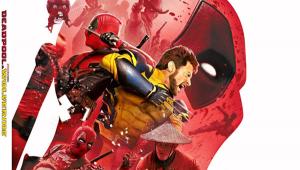Coppola Wins Massive Settlement from Warner Bros.
A week earlier, the same jury had found in Coppola's favor to the tune of $20 million in compensatory damages. The director of The Godfather and Apocalypse Now reportedly wept when the verdict was announced.
The dispute goes back to 1991, when Coppola approached Warner Bros. with the idea of a live-action musical based on Pinocchio, the timeless tale of a marionette brought to life. Coppola's version, which placed the story in the context of children escaping from the Nazis, had a projected production budget of $100 million. Columbia Pictures had previously turned down the project, then later reconsidered it. Warner Bros., whom Coppola had approached in the interim, claimed it owned the screenplay, and threatened to sue any other studio that tried to produce it.
At issue in the trial was whether a legitimate contract had ever existed between the director and Warner Bros. Early on, Coppola received $3100 from Warner Bros. as a good-faith payment. He claimed the studio entered into a separate agreement with his collaborator Mauro Borelli, and then used that agreement as grounds for its claim to exclusive rights to the script. Coppola argued that the amount he was paid was too small to bind him to a deal. The jury agreed, basing its $20 million compensatory award on the amount Coppola earned from Bram Stoker's Dracula, a film he made in 1992.
Warner's senior VP of corporate communications, Barbara Brogliatti, described the verdict as having "no basis" and the $60 million punitive award as "ludicrous." Warner will appeal the judgment, a process expected to last 18 to 24 months.
Proclaiming the verdict as a victory for the little guy, Coppola said, "I feel vindicated in the long struggle with Warner Brothers and encouraged that the individual can stand up against enormous corporations." Coppola, who owns a winery in the Napa Valley, isn't exactly a little guy; as head of San Francisco's American Zoetrope production company, he has made a huge name and a large fortune in the film business. Unlike thousands of other screenwriters who struggle to support their craft, he can afford the very expensive legal firepower required to take on an adversary like Warner Bros.
Similar actions by lesser-known writers generally don't get very far. Steven Spielberg was sued twice in the past year for plagiarism---once by a woman who claimed he had stolen the concept for Amistad from a book she had written about the incident, and later by a man who claimed the concept for Twister was lifted directly from a similar script he had written. Neither of those writers achieved satisfaction.
Coppola vs. Warner Bros. was closely watched by studio executives, industry lawyers, and freelance producers, writers, and directors. In the wheeler-dealer world of big-time entertainment, projects often get rolling---or come to a sudden halt---before money changes hands or signatures appear on the dotted line. Many observers are predicting that this verdict could change that long tradition.
Paranoia and persecution complexes are endemic to Hollywood screenwriters, with enormous historical justification. Although their contributions are the foundation upon which the entire industry depends, most writers in the film industry, as elsewhere, are at the bottom of the creative food chain and economic pyramid. One long-standing Hollywood joke pokes fun at an aspiring actress who was "so stupid she slept with the writer."
- Log in or register to post comments






















































